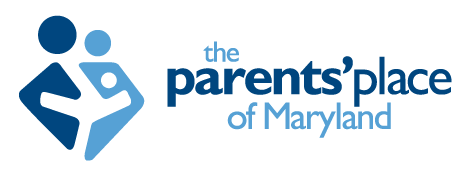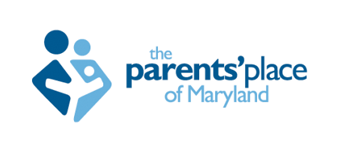
Workshops
The Parents’ Place of Maryland offers a variety of workshops for parents and professionals. These workshops provide information and resources combined with hands-on activities and an opportunity to connect with other parents who understand what you are experiencing. Workshops last about 2 hours. Learn new information and develop skills to help your child. Don’t miss out…sign up today! Click here to see what’s scheduled in your area.
For more information about workshops in your area, call 410-768-9100 or e-mail info@ppmd.org.
Special Education
ADHD in School and Beyond
This workshop will provide participants with and overview Attention Deficit Hyperactivity Disorder (ADHD): symptoms, treatment, and school accommodations.
Special Education: What Parents Need to Know
This workshop will explore the parent’s role in the IEP process. Parents will learn the basics of the child’s right to special education services, how the process of developing special education plans works, and the parent’s role in developing an IEP that is responsive to a child’s needs.
S.M.A.R.T. IEPs
In this workshop you will learn about writing IEP goals that are specific, measurable, action oriented, realistic, and time-limited. You will learn how present levels of performance are used to write measurable goals and objectives.
Next Steps: IFSP to IEP
Families will learn about the transition process from Part C Early Intervention services to Part B preschool services. Topics include transition requirements, Least Restrictive Environment (LRE), Inclusion, and Individualized Education Program (IEP) goals and objectives.
Working it Out: Dispute Resolution under IDEA
This workshop contains basic information about options for resolving disputes related to special education. The focus is on resolving disputes early and options available to families and schools under IDEA in Maryland.
School Discipline and Positive Behavior Intervention
This training covers school disciplinary practices and trends, effects of Zero-tolerance policies, Functional Behavior Assessments, and Positive Behavioral Interventions. Participants will also learn about the importance of partnership between a child’s home and the school in order to have successful positive behavior interventions.
Extended School Year (ESY): Who, What, Why & What Else
This workshop provides an overview of the ESY process for children with disabilities. Some questions (and answers) that will be discussed include: what is ESY, how does a child qualify, and what are the options?
How Will I Know if My Child is Making Progress?
Parents of children with disabilities often ask, “How will I know my child is learning and making progress?” This workshop helps parents answer that question as they learn how to gather information from special education and general education sources. Parents learn how to use this information to help their child.
Ducks in a Row
In this interactive workshop, participants learn effective ways to help transition their child with special needs into their new school setting in August, including how to prepare meaningful information packets for their child’s new team of teachers and specialists. Whether your child is progressing to the next grade, or is changing schools, all parents and caregivers will benefit from participating in this workshop.
What Are You Doing After School? IDEA Services Beyond the Classroom
Schools do more than teach children to read, write, and compute. Along with academic activities, schools usually offer extracurricular and nonacademic activities, which typically involve students of the same age and may be organized and supervised by school personnel. IDEA 2004 broadened the definition of supplementary supports and services by specifying that such aids, supports and services are provided not only in the regular classroom setting and other education-related settings, but also within extracurricular and non-academic settings. In this workshop find out how this applies to your child in his school settings.
IEP Mini Series: How to Become an Informed Effective Parent (IEP) Team Member
This exciting new two-part mini-series will help parents to gain a better understanding of the IEP process and the IEP itself. Participants will:
- Understand the steps of the special education process
- Understand why the role of parents is so important in developing IEPs
- Learn how to become a more active and effective participant in meetings
- Understand the parts of the IEP and what they mean
Participants must attend both sessions and bring a current copy of their child’s IEP with them to both sessions.
Section 504
Understanding 504
Section 504 of the Rehabilitation Act prohibits discrimination against students with physical or mental disabilities who attend public schools, charter schools, or private schools funded with public dollars. This workshop focuses on the right to services and accommodations for students with disabilities and special health care needs who may not be eligible for services under the Individuals with Disabilities Education Act (IDEA) for special education.
Advocacy
Get Organized: Managing Your Child’s Records!
Are you overwhelmed by the mountains of paperwork created by your child’s school and health records? Not sure what to keep, what to toss? Want to be better prepared for that next meeting at school? Join us for this hands-on workshop to finally get those papers organized so you can more effectively advocate for your child. Participants should bring a 3-ring binder and their child’s most recent school records. We will provide you with resources and strategies so you leave organized with success!
Skills for Effective Parent Advocacy
This workshop will explore six skills parents can use to become more effective advocates for their child with a disability. Come learn these skills which include: understanding your child’s disability, knowing your school district, knowing your rights and responsibilities, using clear and effective communication, understanding the special education process, and knowing how to resolve disagreements.
Working for Change: Using the Power of the Personal Story
When parents try to improve services for all children with disabilities, not just their own child,—this is called advocating for systems change. This training explains how parents of children with disabilities can help change systems by telling their own personal stories. By sharing a personal story with the right people, parents can help improve services and supports for children with disabilities and their families.
From Emotions to Advocacy (FETA) Study Group
Many parents want to advocate for their child, but hold back. As the parent of a child with special needs, you represent their interests. How can you harness your emotions and use that energy to become an effective advocate for your child? Using Pete and Pam Wright’s book, “From Emotions to Advocacy,” participants learn effective strategies for becoming effective advocates for their children. This is a 9 session facilitated study course. Must have a minimum of 10 parents enrolled.
Health
Health Advocacy for Families
Many families have difficulty accessing health coverage and services for children with special health care needs. Come learn about the various insurance models, who is eligible, what is covered, and how to apply. Information on the Affordable Care Act will also be provided. Suggestions on what to do if you’re having difficulty accessing health care services will be offered.
What is a Medical Home?
This training defines the term, explains the function, and identifies the key players within a medical home. Participants learn the importance of having a supportive medical home for children with special healthcare needs and the relationship between the medical home and school.
Show Me the Money!
This workshop covers the resources available for parents of children with special health care needs and disabilities to pay for needed medical care. Participants will learn about existing state and national resources.
Working Effectively With Doctors
Learn tips and tools for creating positive working relationships between families and doctors and improve health outcomes for individuals with special needed by promoting collaboration on the health care team, improving communication, and developing health care plans.
Emergency Preparedness for Children with Disabilities
This workshop is designed for families with special needs children. Participants will learn clear, practical, cost-effective strategies to prepare for life’s emergencies whether natural disasters, terrorism, or medically related.
Transition
Letting Go
The most important role that parents have in transition is the gradual process of letting go. When a child has disabilities and has required a great deal of extra care and concern from parents, it is sometimes difficult for parents to let go of their children and allow them to grow up. This workshop explores those concerns and discusses strategies for families to make sure their son or daughter has the skills they need to grow up.
Transition to Adult Life
Transition planning is crucial to increasing successful outcomes for life after high school. Learn how the transition plan in a student’s IEP in high school can prepare for higher education, employment, and life in the community. Resources for transition will be discussed.
Incorporating Healthcare Transition into the IEP
Transition services in the IEP promote movement from school to post-school activities including post-secondary education, employment, independent living, and community participation. Lack of attention to health-related needs in the IEP can jeopardize any and all of these goals. This workshop will provide tips on when, where, why and how healthcare transition can and should be incorporated into the IEP sections on current levels of performance, goals and objectives, services, and evaluation.
What Parents Need to Know: Guardianship Alternatives and Letter of Intent
Knowing the options for health care decision-making for your child is essential as he transitions to adult care, guardianship may not be the only or even the best option. Workshop includes a discussion on creating a Letter of Intent for your son or daughter in the event that you are not able to be involved in his or her care.
Health Insurance Coverage for Youth in Transition
As youth transition to adulthood many factors must be considered including maintaining health insurance coverage and finding new physicians that serve young adults.
Other
Finding Community Resources
Participants in this workshop learn about resources and services in their community that support families of children with disabilities and special health care needs. This workshop is designed to address specific needs of the audience and match those needs to local resources. Participants leave the workshop with a list of local contacts!
Bullying and Harassment: More than Sticks and Stones
This newly revised workshop offers intervention strategies for parents and caregivers of children with disabilities who may be targeted by bullies at school. Participants will learn how to identify types of bullying, develop strategies to prevent bullying, identify responses to bullying, talk to their child about bullying, obtain help from professionals, and find out about disability harassment laws.
Did you finally get an iPad for your child with a disability?
Wondering how to get started? Join us, with your iPad, for an interactive discussion on navigating your iPad. Discussion will include tips and tricks for iPad use with children with disabilities. This is a basic workshop for those just beginning to explore the use of iPad devices.



